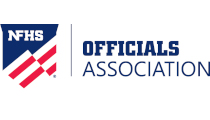Preparing Your Championship Officiating Team for Track and Field
By By Rus Schreckenghost on January 08, 2015 officials PrintThe task of assembling and preparing a complete team of track and field officials for a championship event is a very daunting experience and needs to be implemented during previous years and maintained throughout the entire current season. The preparation that goes into the team of officials will determine the efficiency, safety of athletes and accuracy of that meet. It is similar to that of the school teams that qualify for the championships. Just as the coach prepares the athletes, the meet director (and meet referee) prepares the officials. This preparation is never ending and needs to be visited quite often for updates and modifications. The following are a few points to consider when a big meet is approaching.
Contact the officials that participated in the cross country championship meet and qualifying meets. Many times these officials will also be available and interested in the track and field meet. For some officials, the duties and responsibilities are the same for both championships. Other positions are different but close enough that the transition is minor and easy for most. Another advantage in using cross country officials is that many athletes and coaches cross over from one sport to the other and these officials will be recognizable. There is always an advantage to having athletes and coaches know with whom they are working. The same is true for officials recognizing the athletes and coaches. For states that also have Nordic ski championships, consider these officials as another valuable source of expertise and knowledge.
Identify those individuals that will be included and will make up the following designated positions: head referee, field referee, clerk of the course, starter, timing device operator, chief finish evaluator, head timer, head umpire, and announcer. This is the minimum list of identified crucial positions. There may be a need to include other positions based on particular concerns created at the championship location. Hopefully, some of these individuals will be returning from previous years and have plenty of experience. If this is not the case, consider pairing two officials (one with more experience and one that is relatively new at that position) together. Another possibility is to have that official work with a trusted experienced official at the assigned position at early meets during the year. During these meets, give more responsibility to this official to learn from the situations that arise.
Once these people have been identified, charge them with the responsibility of helping make the meet a positive experience for all involved. Include them in some of the decision-making opportunities. Once they are trusted, they will provide more input and will take more responsibility. Obviously, the final decision rests with the meet administrator, but it is always better to get other opinions to help make that decision with more knowledge. This also helps to prepare individuals for stepping into other positions by gaining valuable experience. The transition of meet leadership is smoother using this procedure.
Keep in touch with these individuals and monitor how often and what positions they are officiating during the season. Discuss probable championship positions assigned with officials prior to or early in the season to get their feedback. Many times officials have their favorite positions or locations for officiating. Whenever possible, assign them to the positions that they feel the most comfortable and knowledgeable. Having a personal discussion regarding their assignments will probably give the officials more ownership regarding that assignment and provide them the opportunity to gain more experience as the season progresses.
Be available to discuss issues and situations that arise during the season with these officials. Be available to share possible decisions regarding these situations. Make sure each official knows that his or her championship assignment will be based on available skills present on the day of the meet. The tentative list of positions is what you feel is the best for everyone involved if all officials show up for the event. If necessary, changes can be made to the crew up to and including on championship day. The priority is to provide a safe and enjoyable event for all involved. If changes need to be made to ensure this, they will understand.
Whenever possible, work with as many officials at a qualifying meet prior to your championship meet. The more frequently an official works the position, the more comfortable he or she will become. But more importantly, he or she will be more experienced to handle possible difficulties that arise. Try not to have an official show up the day of the event with no prior officiating in the season. If this occurs, use this person’s expertise in another area by assigning that official to another position. All positions are important, but some are more crucial to the event than others. Be open and honest and tell that person why the change was made. Keep an open relationship with all the officials and they will probably reciprocate.
Work as many regular season meets as possible and officiate at many different positions. For example, make a point to clerk one meet, event judge another, and work the finish chute for one as well as be available for any position needed at that time. Being in many positions during the season provides the opportunity to know more officials and be reminded of the front line and hands-on work that is so important. The more positions one is available for, the more officials will get to know personally. This is an important time to share knowledge and find individuals that are showing interest in the sport. This will also show others that all positions are important in the total officiating crew.
Another point to consider in choosing and preparing a crew is to use input from coaches. Most coaches, when asked, will eagerly provide their opinion of officials (both positive and negative). Coaches will also be able to provide names of newer officials that may or may not be ready to officiate in a championship event providing a list of contacts will grow for future championships. Inform the coach during a meet that you will be contacting him or her after the meet is over (maybe early the next week) for their input. This will give the coach another opportunity to observe and evaluate some of the officials before the discussion. After receiving this input, use the information by checking it out firsthand. Go to a meet and watch how the official communicates with athletes, coaches, fans and other officials.
Occasionally, ask coaches about a certain official. This can be done the same way but instead of asking for their opinion on officials, ask them their opinion on a particular official regarding a particular assigned position. An example of this may be asking how well a starter performs as an assistant starter. It is important to get the correct official in the correct position and getting coaches input may help in this process.
Assembling a complete officiating crew for a track and field championship event is challenging and time consuming. Keep all options for adding new available officials while using plenty of experienced officials and make sure to enjoy the experience.
By Rus Schreckenghost
Rus Schreckenghost, currently the associate director for the Alaska School Activities Association, has been involved with track and field for 45 years as an athlete, coach and official. He officiates at the youth, middle school and high school levels. He is also the meet referee for the Special Olympics Alaska Track and Field Summer Games.
Most Recent Articles
- nfhs news NFHS Learning Center Delivers 25 Millionth Course
- Track & Field/Cross Country article Effective Communication with Athletes and Coaches
- nfhs news Player Equipment Changes Highlight 2025 High School Football Rules Revisions
- Player Equipment Changes Highlight 2025 High School Football Rules Revisions
- nfhs news Judgment Call on Second Contact Eliminated in High School Volleyball






